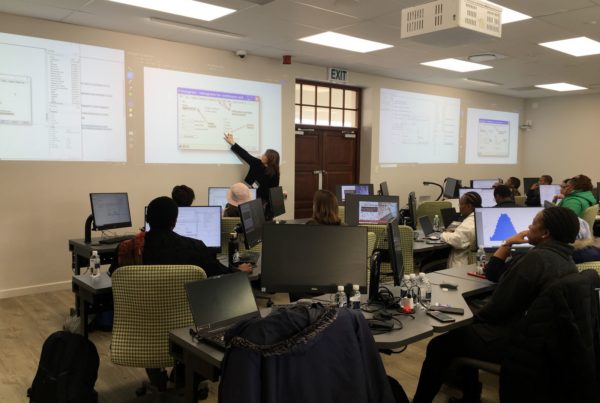In 2018, RESEP was contracted by the Department of Higher Education and Training (DHET) via the National Skills Fund to draft an Investment Trends report. The report provides a broad overview and analysis of financial trends in Post-school Education and Training (PSET), with the emphasis falling on the 2010/11 to 2019/20 financial years, including the 2017 Medium Term Expenditure (MTEF) period, while providing detailed underlying data (nominal and real). “Investment trends”, as used in the report, refer to financial flows, and how these (eventually) can be transformed into gains in human capital and returns on investment. The PSET or post-school system comprises “all education and training provision for those who have completed school, those who did not complete their schooling, and those who never attended school” (DHET, 2013: xi)
The report focuses on four key sub-sectors: Higher Education Institutions or universities; Technical and Vocational Education and Training (TVET) Colleges; Community Education and Training (CET) Colleges; and Sectoral Education and Training Authorities (SETAs).
Given the high levels of both inequality and poverty in South Africa, much of it generated within the labour market, access to skills valued in the labour market is critically important. Broadening such access can be enabled via expanding and instituting the right type of expenditure in the PSET sector, which is essential for reducing labour market inequality. This requires that the PSET sector should provide education and that that education be of high quality, improving skills for the workplace and thereby stimulating the productivity and earnings of both employed workers and the self-employed.
Some of the main findings of the report (see p. 15 of the report) include the following:
- “In universities, there has been a rapid enrolment growth, rising throughput and graduation rates despite many more first-generation university students, a moderate improvement in racial inequalities in performance, and remarkable growth in two high level outputs, doctoral students and research publications. Yet this university sector remains much smaller than in other upper-middle-income countries, and it is now confronted by the challenge to find an appropriate funding model during a period of fiscal stress in order to allow more first generation university students to study successfully. Failure to find such a model may well lead to continued social instability on university campuses, with possible dire consequences for further development. The debate about this has recently also been influenced by the report of the Heher Commission and the announcement about free education by President Zuma in December 2017. At this stage it is not yet clear how this will play out in the months and years to come.
- Technical and Vocational Training (TVET) has expanded dramatically from a very low base. The funding flows required for it to grow to the size envisaged in the White Paper on Post-School Education and Training or in the National Development Plan are clearly not achievable. The TVET sector also has to demonstrate its contribution to generating the skills required in the economy, which would provide a stronger basis for continued growth. There is also some uncertainty whether it should largely function as an alternative to the Further Education and Training school phase, as it is sometimes portrayed, or as actual post-secondary education and training.
- The SETAs have thus far failed to generate great enthusiasm amongst employers as offering an important vehicle for enhancing workplace productivity. Nevertheless, they have strongly expanded participation in their learnerships, internships and skills development programmes, indicating that some economies of scale may now be reaped.”
The report was finalised in March 2018 and can be found below. An infographic (also found below) was also produced as a shorter, summary version of key findings of the report. Since the report was written before the policy announcement in December 2017, to phase in bursaries for a substantially larger number of TVET college and university students, the infographic was supplemented with information on this announcement and additional student funding made available in the 2018/19 budget and over the medium term.
The core members of the RESEP team who undertook this work are Prof. Servaas van der Berg, Dr Hendrik van Broekhuizen, Dr Anja Smith and Dr Chris van Wyk. Special thanks are due to Mr Russell Wildeman (Peer Reviewer); Prof Joy Papier (University of the Western Cape); Ms Nokwazi Makanya (National Treasury) and all the colleagues from various Branches in the Department who contributed to ensuring that this publication is as accurate a reflection of all relevant information as possible.
The full report is available here. Additionally, a zip file containing all the underlying tables and figures as well as an infographics pack are available below.
DOWNLOAD PDF DOWNLOAD PDF





